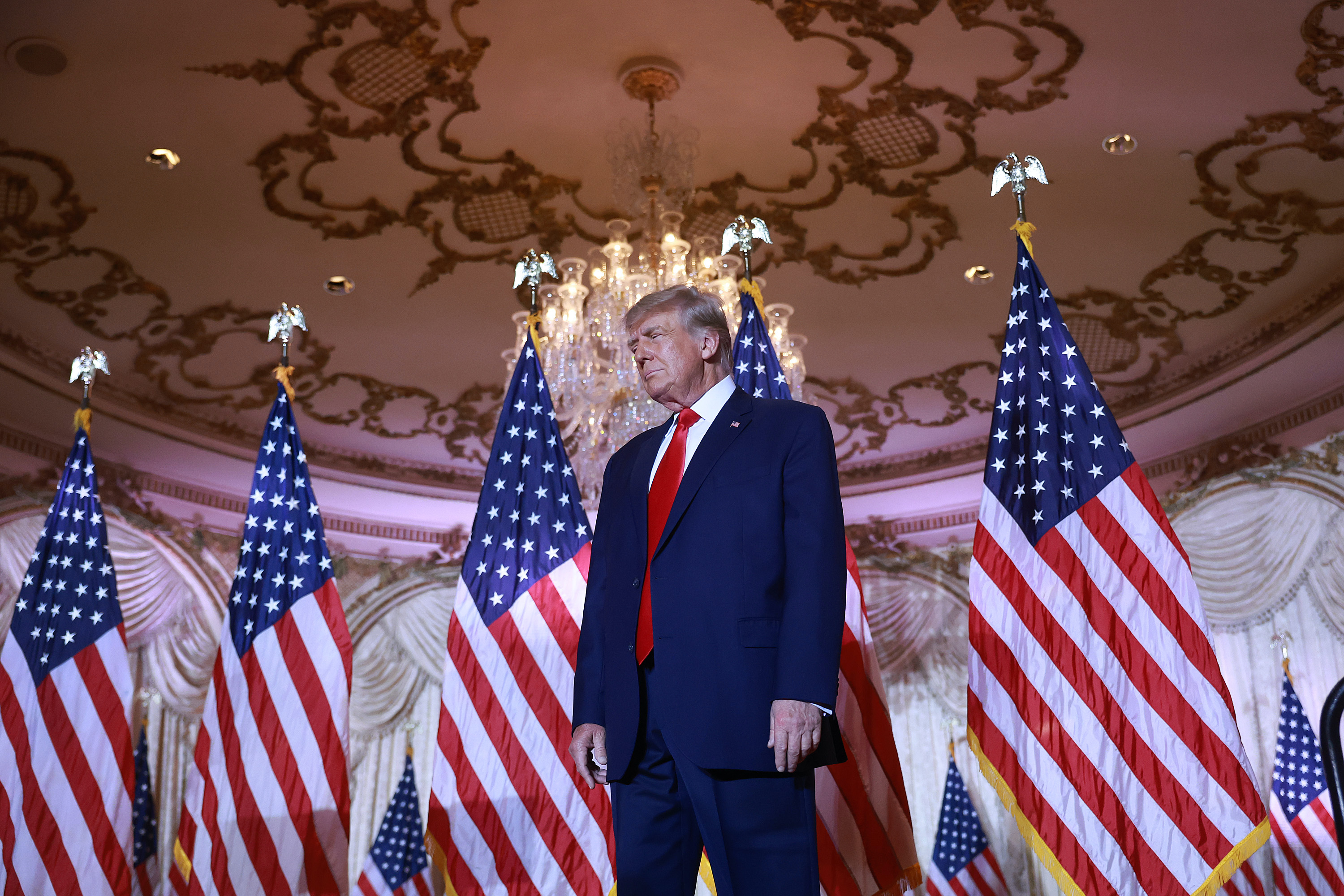Israel And The Arab World: Assessing The Impact Of Trump's Visit

Table of Contents
The Abraham Accords: A Landmark Achievement or Limited Success?
The Abraham Accords, signed in 2020, represent a landmark shift in relations between Israel and several Arab nations. These normalization agreements, brokered in part through Trump's diplomatic efforts, saw the United Arab Emirates (UAE), Bahrain, Morocco, and Sudan formally recognize Israel. This marked a significant departure from decades of Arab League policy which often prioritized the Palestinian issue above all else in relations with Israel.
-
Key Signatories and Significance: The UAE and Bahrain were the first to sign, followed by Morocco and Sudan. These agreements went beyond simple diplomatic recognition, encompassing various aspects of cooperation, including trade, tourism, and security.
-
Economic and Security Benefits: Participating nations have touted significant economic benefits, including increased tourism and trade opportunities. Security cooperation, particularly in intelligence sharing regarding regional threats like Iran, has also been cited as a key benefit.
-
Limitations and the Palestinian Issue: A significant criticism of the Accords is their relative silence on the Israeli-Palestinian conflict. The agreements did not address core Palestinian demands, leading to accusations that they prioritize the interests of Israel and its Arab allies over the aspirations of the Palestinian people for a sovereign state. This is a crucial point to consider when assessing the long-term sustainability of the Abraham Accords.
-
Impact on Regional Trade and Tourism: Already, we've witnessed increases in tourism and trade between Israel and the participating Arab nations. This economic integration signals a new era of cooperation, but its long-term success is still dependent on maintaining political stability.
-
Long-Term Sustainability: The long-term sustainability of the Abraham Accords remains a subject of ongoing debate. While the agreements have yielded some immediate benefits, their future depends on continued regional stability, the resolution of the Israeli-Palestinian conflict, and a continued commitment from participating nations.
Trump's Approach to the Israeli-Palestinian Conflict: A Shifting Paradigm?
Trump's approach to the Israeli-Palestinian conflict differed markedly from previous US administrations. His "deal of the century," unveiled in 2020, proposed a two-state solution but significantly deviated from previous frameworks. It favored the Israeli perspective on key issues, including Jerusalem and settlements.
-
Trump's "Deal of the Century": This peace plan recognized Jerusalem as Israel's capital and allowed for the annexation of certain Israeli settlements in the West Bank, concessions vehemently rejected by the Palestinians. This controversial aspect, coupled with other contentious clauses, contributed largely to the failure of the plan.
-
The Palestinian Perspective: The Palestinian Authority (PA) rejected the "deal of the century," viewing it as biased and failing to address their core demands, including the right of return for refugees and the establishment of a viable, independent Palestinian state.
-
Jerusalem and Settlements: Trump's decisions on Jerusalem and settlements further strained relations with the Palestinians, who see these moves as undermining their aspirations for statehood. The relocation of the US Embassy to Jerusalem remains a deeply contentious issue in the ongoing conflict.
-
Success or Failure of Peace Efforts: Trump's attempts to broker a lasting peace agreement ultimately failed. His focus on bilateral deals, rather than multilateral negotiations involving regional actors and the UN, failed to secure consensus.
-
Challenges to a Two-State Solution: The ongoing challenges to a two-state solution remain significant. The expansion of Israeli settlements, the continued division of Jerusalem, and the lack of progress on the refugee issue severely hinder the prospects for peace.
Shifts in Regional Alliances and Power Dynamics
Trump's policies significantly affected regional alliances and power dynamics in the Middle East. The Abraham Accords shifted the regional balance, creating new alliances between Israel and some Arab nations, previously united against it.
-
Impact on Regional Alliances: The normalization agreements fundamentally altered long-standing regional alliances, aligning certain Arab states more closely with Israel and the US. This realignment, however, has also sparked tensions with other regional actors.
-
Israel-Arab Relations: Relations between Israel and its Arab neighbors have grown increasingly complex, with some Arab nations pursuing closer ties with Israel while others remain deeply opposed. This new dynamic calls for a thorough analysis of the geopolitical landscape and future trajectory.
-
Sunni-Shia Divide: The impact of Trump's policies on the Sunni-Shia divide is multifaceted, with the Abraham Accords potentially affecting the dynamics between Sunni states and Iran, a Shia power.
-
The Role of Iran: Iran's influence in the region continues to be a significant factor shaping relations between Israel and its Arab neighbors. Its nuclear program and regional ambitions are a major source of tension.
-
Potential for Further Normalization Agreements: The success of the Abraham Accords has raised the possibility of further normalization agreements between Israel and other Arab nations. However, this remains uncertain, with several factors, including the status of the Palestinian issue, playing a decisive role.
The Role of the United States in the Middle East
Trump's administration marked a shift in US foreign policy towards the Middle East. This involved a reduction in military engagement, a focus on counter-terrorism, and a revised approach to the Israeli-Palestinian conflict.
-
Shift in US Foreign Policy: Under Trump, the US adopted a more transactional approach to foreign policy, prioritizing bilateral deals over multilateral cooperation.
-
Continuing US Influence: Despite a reduced military footprint, the US maintains significant influence in the Middle East through economic and political ties. This influence will undoubtedly continue to impact the relationship between Israel and the Arab world.
-
Implications of Trump's Legacy: Trump's legacy in the Middle East is complex and will likely continue to shape US policy for years to come. The shifts in regional alliances and the focus on normalization agreements represent a significant departure from previous strategies.
Conclusion
Donald Trump's visits to Israel and the Arab world undeniably left a lasting impact on the region. While the Abraham Accords represent a significant step toward normalization between Israel and some Arab states, the Israeli-Palestinian conflict remains a major hurdle to lasting peace. Trump's approach, marked by a departure from traditional diplomacy, reshaped regional alliances and power dynamics, leaving a complex legacy for future administrations to navigate. Understanding the impact of Trump's legacy on the relationship between Israel and the Arab world is crucial for comprehending the current geopolitical landscape of the Middle East. Further research into the nuances of the Abraham Accords and the ongoing Israeli-Palestinian conflict is essential to promoting a lasting peace between Israel and the Arab world.

Featured Posts
-
 Reputation Taylors Version Taylor Swifts Official Teaser And What It Means For Fans
May 18, 2025
Reputation Taylors Version Taylor Swifts Official Teaser And What It Means For Fans
May 18, 2025 -
 Dodgers Beat Mariners 6 4 As Conforto Hits First Home Run
May 18, 2025
Dodgers Beat Mariners 6 4 As Conforto Hits First Home Run
May 18, 2025 -
 Taylor Swifts Eras Tour Wardrobe A Close Up Look At The Costumes
May 18, 2025
Taylor Swifts Eras Tour Wardrobe A Close Up Look At The Costumes
May 18, 2025 -
 The Unexpected Economic Advantages Of Popular Rave Festivals
May 18, 2025
The Unexpected Economic Advantages Of Popular Rave Festivals
May 18, 2025 -
 Ram Fest 2024 Marcello Hernandezs Side Splitting Performance
May 18, 2025
Ram Fest 2024 Marcello Hernandezs Side Splitting Performance
May 18, 2025
Latest Posts
-
 Mike Myers Patriotic Snl Outfit Sparks Conversation The Canada Is Not For Sale Shirt
May 18, 2025
Mike Myers Patriotic Snl Outfit Sparks Conversation The Canada Is Not For Sale Shirt
May 18, 2025 -
 Mike Myers And Colin Mochrie Headline Toronto Charity Event
May 18, 2025
Mike Myers And Colin Mochrie Headline Toronto Charity Event
May 18, 2025 -
 Tna Sacrifice 2023 Mooses Absence And The Hardys Fate
May 18, 2025
Tna Sacrifice 2023 Mooses Absence And The Hardys Fate
May 18, 2025 -
 Canadian Pm Carney And Mike Myers Condemn Trumps Policies
May 18, 2025
Canadian Pm Carney And Mike Myers Condemn Trumps Policies
May 18, 2025 -
 Mike Myers Canada Is Not For Sale Snl Shirt A Bold Statement
May 18, 2025
Mike Myers Canada Is Not For Sale Snl Shirt A Bold Statement
May 18, 2025
